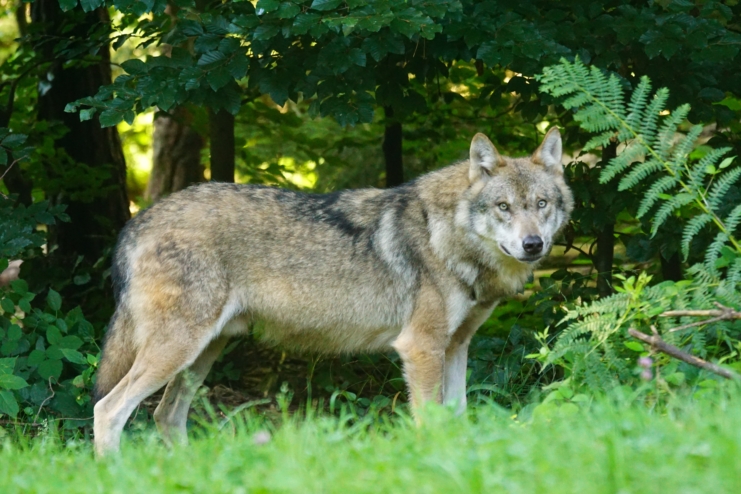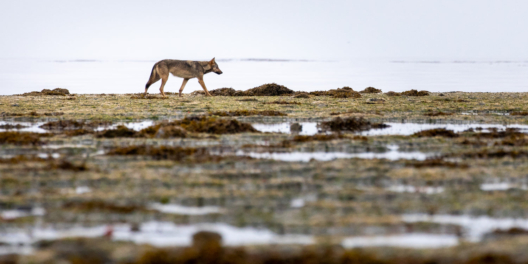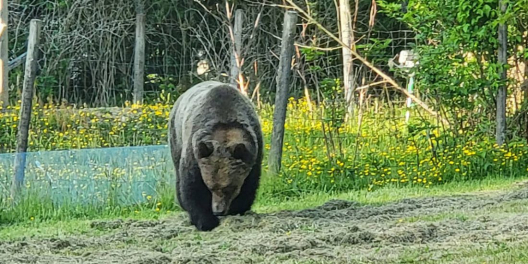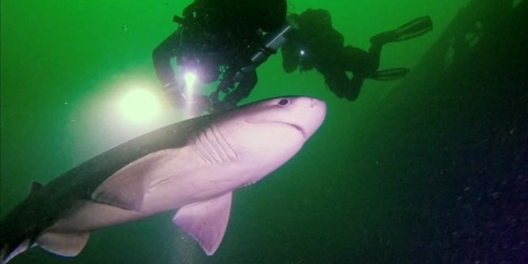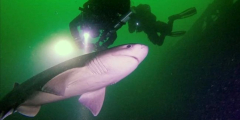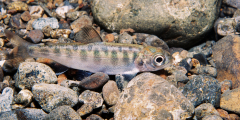Tahsis residents are on edge after wolves killed and mauled at least a half dozen pets. Frequent wolf sightings over the past several months in and around this remote, former sawmill community of 250 people at the head of Tahsis Inlet, has conservations officers (CO) urging citizens to keep pets inside and remove attractants like bird feeders from around homes.
The first reported attack happened about three weeks ago.
“The dog’s owner actually elected to physically engage the one wolf and, as I understand, he kicked it to get it to let go of his dog,” conservation officer Steve Petrovcic told CTV News last Tuesday. “Those two wolves let go of the dog and backed off, but unfortunately that dog succumbed to its injuries.”
Shortly after, a second fatal attack was reported. In addition, there have been other reports of wolves chasing or lunging at pets. And one resident found several destroyed goose carcasses.
According to conservation officers, three wolves appear to be hunting pets in people’s yards. Despite making several visits to this community 100 km west of Campbell River, COs have been unable to locate the wolves.
What’s even more alarming is that the wolves are prowling village streets during the day without fear – not normal behaviour for wolves.
“Daytime sightings, desensitized behaviour, habituated to pets – that’s obviously undesirable behaviour,” Petrovcic said. “We want the public to be extra vigilant in doing what they can to stay safe, keep their pets safe, and promptly report any sightings to the conservation officers.”
Given their behaviour, COs say these wolves are not candidates for relocation.
Vancouver Island wolves are a subspecies of grey wolf found in the interior. They are highly social predators that live in packs of between five and 20. Researchers estimate that there is a stable population of between 150 and 180 wolves on Vancouver Island.
Though they are often blamed for reducing the abundance of deer, Vancouver Island marmot, and other prey species, Chris Darimont, a leading wolf biologist and UVic’s Raincoast Research Chair, said wolves are unfairly scapegoated. Instead, research points to habitat loss from forestry and other ecosystem impacts as the main culprit, Darimont said in a 2019 interview with Victoria News.

